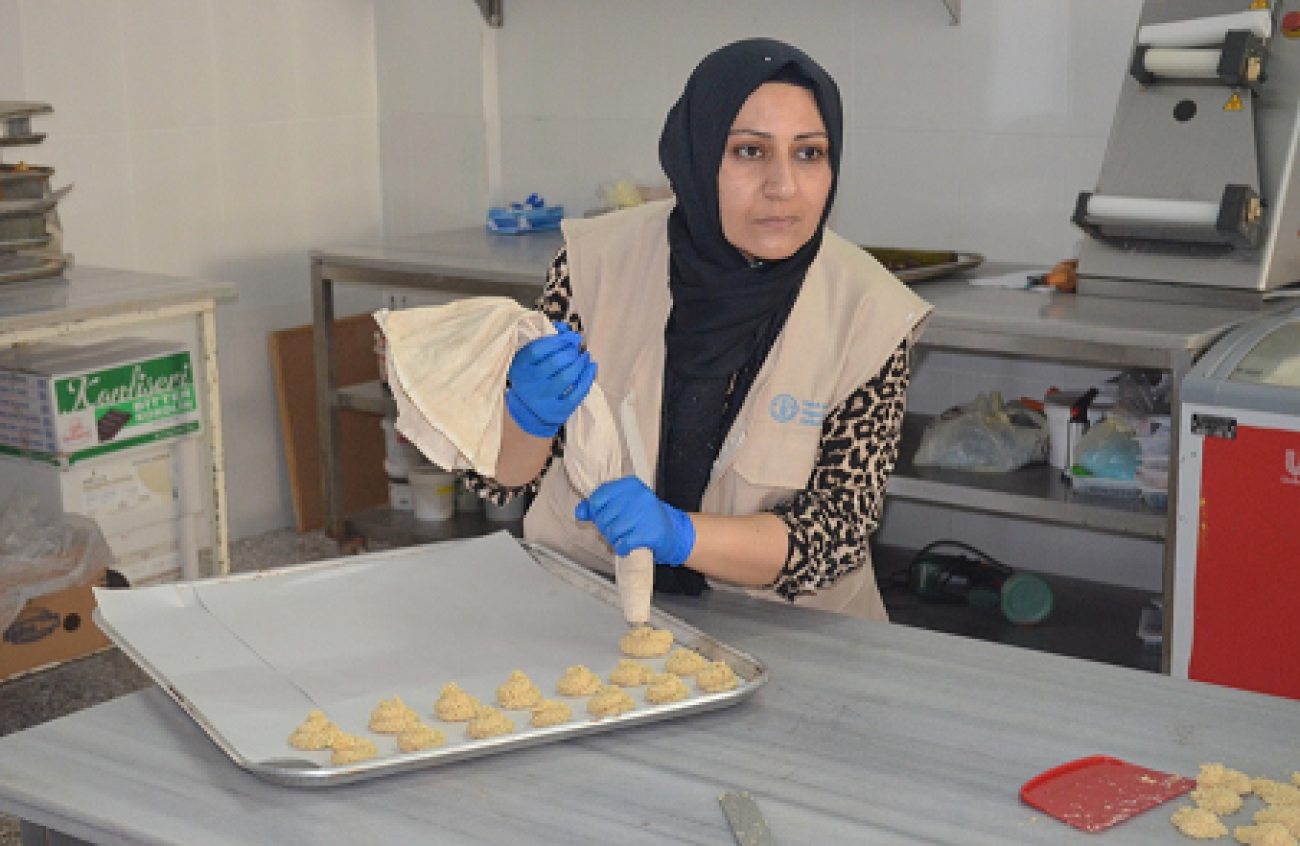A vocational training programme, offered by FAO in collaboration with the Ministry of Agriculture and Forestry and UNHCR, on bakery skills targets Syrian refugees and vulnerable host communities to provide employment opportunities. A mother of four, Türkan Demiröz, was among the participants.“I am so enthusiastic to cook. I learn many things from this training and feel so self-confident. I would love to have a pastry shop. With the training I am receiving here, I can make it a reality. I also got the chance to have friends while working’’.
Since 2017, the “Increase self-reliance and improve agricultural livelihoods of refugees through employment opportunities (Phase III)’’ project, co-financed by the European Union and Government of Turkey, has supported the livelihood of 1 115 Syrians under Temporary Protection Regulation and members of the host community through improving employability and enhancing decent work opportunities in several regions. The trainings included provision of theoretical and on-the-job trainings on food and agriculture topics, as well as some crucial complementary topics such as Turkish language, labour legislation, employment services and life skills. In this respect, on the job trainings was considered a win-win model where trainees learn while they earn, and employers ensure that skills are relevant and can recruit the best trainees. FAO is also working to foster dialogue among the governmental institutions, workers and employers to improve legal framework, partnerships, quality and employment outcomes of the trainings at the local level. İman and Mohammed Etro, a couple who fled from Syria with their four kids, have started a family business in Turkey with 25 sheep. Now they reached more than 250.
Livestock is an important sub-component of the agricultural sector here and plays a key role in the national as well as household economy.
From this income, the family managed to move out from the camp and rent a house near the city, which is better for the education of their children.
In Syria, they had no experience with rural life, yet animal husbandry, thus the training proved to be a major help when the calves where born.
“Thanks to FAO, I learnt a lot about how to feed the animals, what to do when they get sick,” said İman Gaziantep Breeding Sheep and Goat Breeders Association, who support the project beneficiaries, acknowledged that the educated beneficiaries learn and adapt to the environment easily. The association frequently visits the families to check the animals whether they have diseases and for vaccination.
“I and my husband must work for our children as they have education expenses. I also improve myself in learning Turkish by communicating with the people around me and owners of the house. I would like to continue Turkish courses provided by Gaziantep Metropolitan Municipality.”





